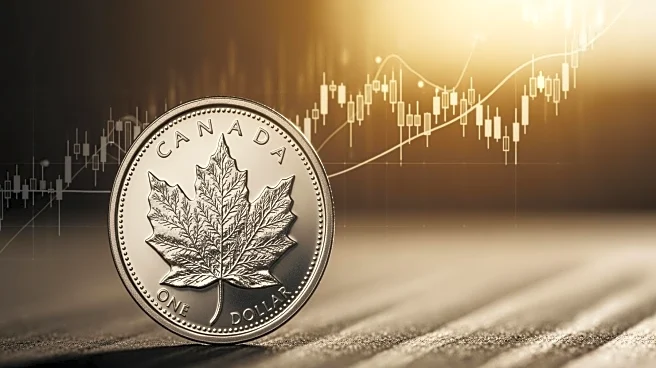What is the story about?
What's Happening?
A significant sell-off in global long-dated bonds has led to record highs in gold prices, with spot gold reaching $3,546.99 per ounce. This financial shift is attributed to growing concerns over government debt sustainability and long-term inflation, prompting investors to seek alternative safe-haven assets like gold. The sell-off has affected government bonds in Japan, the UK, and the US, with yields reaching unprecedented levels. The economic instability is further compounded by political challenges in Europe and Japan, where fiscal policies and government confidence are under scrutiny.
Why It's Important?
The surge in gold prices highlights a broader economic uncertainty, as investors move away from traditional low-risk assets like government bonds. This shift could have significant implications for global financial markets, potentially affecting interest rates, currency values, and investment strategies. The rising gold prices also reflect a lack of confidence in government fiscal policies and economic reforms, which could lead to increased volatility in financial markets. Stakeholders, including governments and investors, may face challenges in maintaining economic stability and growth amid these uncertainties.
What's Next?
The ongoing bond sell-off and rising gold prices suggest continued market volatility. Investors and policymakers will likely monitor upcoming economic data, such as US nonfarm payrolls, to gauge the potential impact on interest rates and economic growth. Additionally, political developments in Europe and Japan could influence market dynamics, as governments address fiscal challenges and investor confidence. The financial markets may also react to potential US interest rate cuts, which could further affect gold prices and investment strategies.
















